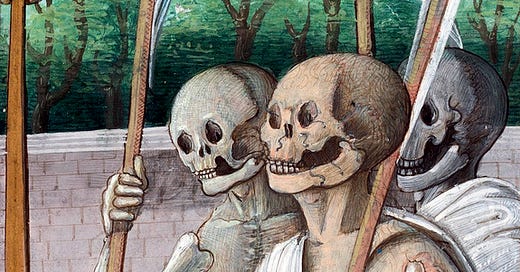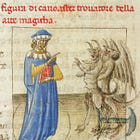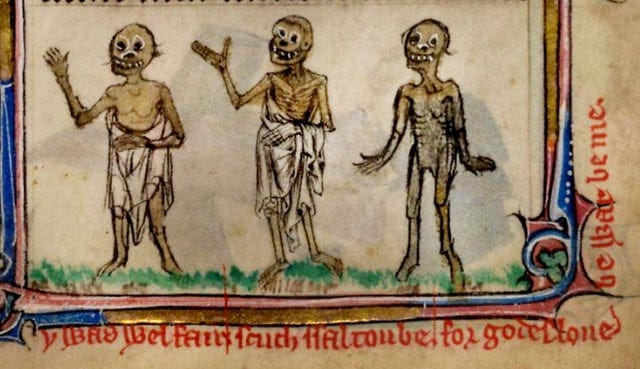Necromancy—Fantasy and History
From reverse exorcism to armies of skeletons, what was medieval necromancy really?
Magic Creep
I read a fantastic note this week which touches on a similar idea motivating this post. Read it here:
Basically, as we tuck into this topic bear in mind just how powerful belief in magic is/was: and how in modern fantasy fiction, magic has to be ascribed artificial limiters—complex ‘hard magic systems’ or plot devices—to simulate belief and therefore have those same stakes. Because modern magic has no inherent stakes, some fantasists ‘crept’ the powers magic was capable of. So you get wizards destroying continents or summoning storms or draining planets of life. It becomes absurd.

These crazy powers just compound that same unrealism. Magic has no stakes but all the power. So in response, one might think writers would turn back to the mystic and try to create a sense in which the world is filled with magic again. Not so—the trend now, to make magic feel ‘real’ is inventing (‘hard’) systems,1 or rationalising hard limiters and rules for how magic operates and what it can or cannot do, so as to simulate that feeling that their worlds are magical. That misses the point and Abigail’s ‘magic creep’ is a great mode for analysing this.

But real-life medieval magic had stakes. At times those stakes were life and death.
What’s the point in attempting magic?
We asked this question a bit in the Introduction to Medieval Magic. Magic could be dangerous—necromancy could be among the most dangerous. People were tortured and brutally executed for necromancy. So what was the point in attempting it?
Some necromancers were paid to do it—‘service magicians’ in Hutton and Stanmore’s helpful formulation.2 Others attempted necromancy hidden in the abbey’s cloister,3 or in secret upon twilit hills.4 Necromancy was performed by individuals and in groups.
That’s all well and good—but why bother? There are many answers to this question. I suppose the better way to put it is what did you get out of necromancy itself? What made necromancy worth the risk?
Keep reading with a 7-day free trial
Subscribe to Livres des Merveilles: Cabinets of Curiosities to keep reading this post and get 7 days of free access to the full post archives.






